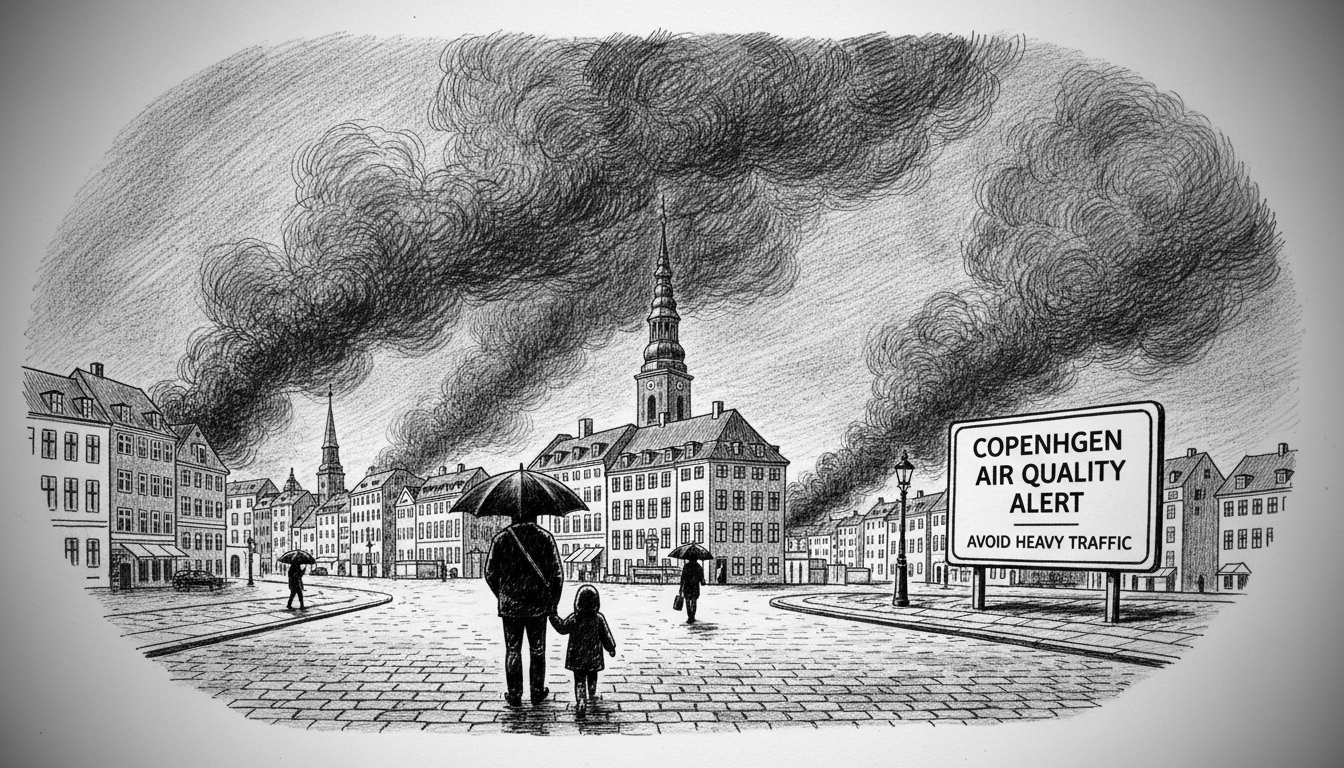Copenhagen faces serious air quality problems this week. Monitoring stations across the city detected very high pollution levels in multiple neighborhoods. The affected areas include the bridge districts, the city center, and parts of Amager.
Official data from Copenhagen Municipality shows the concerning readings. The city's daily air quality monitoring system provides real-time updates about pollution conditions. Researchers from Aarhus University supply the scientific data behind these measurements.
Air quality experts classify pollution into four categories. These range from low to medium, high, and very high. The current very high classification indicates dangerous conditions for public health.
City officials issued specific recommendations for vulnerable residents. They advise limiting time spent on heavily trafficked roads in polluted areas. People should instead seek out green spaces and quiet streets with less vehicle traffic.
Several groups face particular health risks from poor air quality. Pregnant women, asthma patients, and people with COPD need special precautions. Children with certain chronic illnesses also belong to high-risk categories.
This pollution spike reflects Copenhagen's ongoing struggle with urban air quality. Despite ambitious climate goals, the city continues experiencing periodic pollution events. Vehicle emissions remain the primary culprit, especially during weather conditions that trap pollutants near ground level.
Denmark's environmental regulations set strict limits on air pollutants. The country follows European Union standards for particulate matter and nitrogen dioxide. Current levels appear to exceed these safety thresholds in multiple locations.
International readers should understand Copenhagen's geographical challenges. The city's coastal location and weather patterns sometimes concentrate pollution. Temperature inversions can prevent dirty air from dispersing properly.
Copenhagen residents have grown accustomed to these periodic pollution warnings. The city government faces pressure to accelerate its green transition plans. Electric vehicle adoption and expanded cycling infrastructure represent key solutions.
The timing raises questions about seasonal pollution patterns. Colder weather often worsens air quality as heating systems operate and pollution disperses less effectively. City planners continue working on long-term solutions to this recurring problem.
What happens next depends on weather conditions and policy responses. Municipal authorities may consider temporary traffic restrictions if pollution persists. Residents await updates about when air quality might return to acceptable levels.

